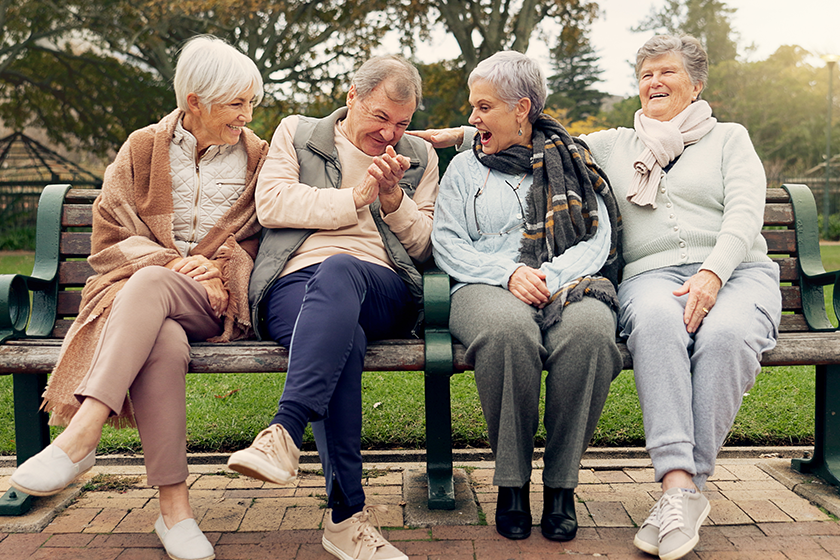Maintaining strong social connections is often overlooked when considering the well-being of older adults. Yet, socialization for seniors plays a major role in mental health and quality of life. By actively engaging with others, your older loved ones can experience an improvement in their cognitive function, emotional support, and overall sense of purpose.
Loneliness, depression, and anxiety are common concerns that many individuals face as they age. However, what many do not realize is how effective social interaction can be in combating these issues. Older adults who remain engaged in their communities, whether through family gatherings, group activities, or social gatherings, often find that their mental and emotional health improves dramatically.
Combating Loneliness and Isolation
Loneliness is a significant concern for many in their later years. Individuals who live alone or have limited mobility are at greater risk of isolation, which can lead to depression, anxiety, and other mental health issues. Socializing with others helps to reduce these feelings, offering companionship and emotional support.
Regular interaction with friends, family, or neighbors can offer a sense of belonging that wards off feelings of abandonment. Participating in simple activities like a local celebration or meeting with a friend for coffee can make a big difference. Being around others allows older adults to share their experiences, reminisce, and feel more connected to the world around them.
Improving Cognitive Function
Socialization has significant benefits for brain health. Engaging in conversations, group activities, and problem-solving tasks helps stimulate the brain, promoting better cognitive function and reducing the risks of mental decline. Active social lives are less likely to develop conditions such as dementia or Alzheimer’s disease.
Participating in activities like puzzles, board games, or even just sharing stories with friends helps keep the mind sharp and engaged. These activities encourage critical thinking, memory retention, and mental stimulation, all of which are vital in maintaining mental clarity as one grows older.
Offering Emotional Support and Stability
A strong social network can provide the emotional stability that is often needed during the later stages of life. Friends and family members who are readily available offer support during difficult times—whether it is coping with the loss of a loved one, dealing with health concerns, or simply navigating the challenges of aging.
Having someone to talk to or share experiences with reduces feelings of stress and anxiety, helping manage emotional challenges better. The social bonds built through community events or group activities also give older adults an outlet for expressing themselves, which can lead to greater peace of mind.
Boosting Self-Esteem and Confidence
Socialization plays a big role in helping older adults feel appreciated and valued. As people age, they may feel disconnected or as though they no longer have an important role in society. Engaging with others through social events or group activities provides recognition, reinforcing their sense of self-worth.
When residents take part in group activities or share in social gatherings, they are often recognized for their contributions, knowledge, or wisdom. This positive feedback can boost self-esteem and promote a more confident outlook on life. Feeling valued is important for maintaining a strong sense of identity and purpose, which is key to good mental health.
Enhancing Physical Health Through Socializing
While the mental benefits of socialization are often discussed, the physical health benefits are just as important. Socializing often involves physical movement, whether it’s walking to meet a friend or participating in a lifestyle activity like group exercise. These physical activities can help residents stay active and maintain mobility, which in turn benefits their overall health.
Engaging in group activities, whether it’s a fitness class or a social outing, encourages a more active lifestyle, which has direct physical health benefits. Physical activity has been linked to improved cardiovascular health, mobility, and a lower risk of chronic illness, making it a vital component of aging well.
Building Connections for a Better Future
Socialization offers more than just emotional and cognitive benefits—it also helps older adults build connections that lead to a more fulfilling and enriched life. As your loved ones age, it is important to encourage them to engage with their community, take part in social activities, and nurture relationships with others.
At our retirement community, we understand the importance of building meaningful connections. With a wide range of engaging activities, community events, and senior living programs, we offer a vibrant and active environment that supports emotional well-being. The lifestyle activities we offer are designed to foster connections and promote a healthier, happier life for your older loved ones.
Supporting Mental and Emotional Health
Socializing with others is a powerful tool in supporting mental and emotional well-being. By creating opportunities for interaction, engagement, and connection, you can help your older loved ones enjoy a fuller, more meaningful life.
In a supportive environment, your loved ones can experience the benefits of socialization, boosting their confidence, cognitive health, and overall happiness in old age.







